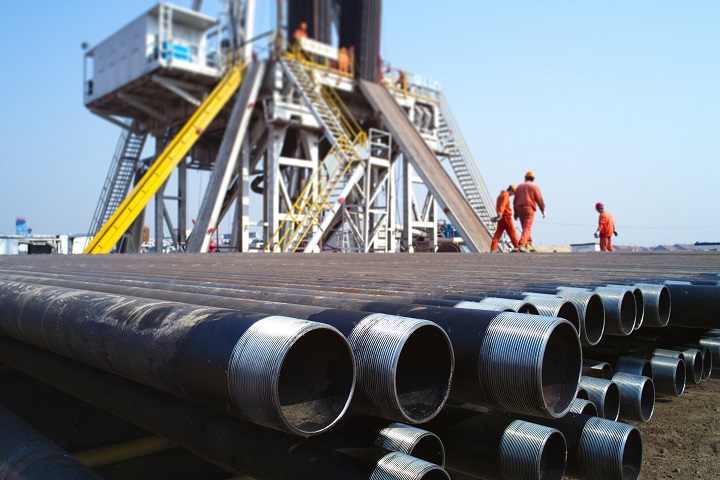 In the industry, two terms often spoken of in the same breath are “line pipe” and “pipeline.” But what’s the difference between these two essential elements of various businesses? Imagine line pipes as the individual building blocks, while pipelines are like the grand structures they construct. In simple terms, line pipes are the smaller pieces that, when joined together, create the pipelines we rely on for transporting vital substances. But let’s not get tangled up in jargon just yet.
In the industry, two terms often spoken of in the same breath are “line pipe” and “pipeline.” But what’s the difference between these two essential elements of various businesses? Imagine line pipes as the individual building blocks, while pipelines are like the grand structures they construct. In simple terms, line pipes are the smaller pieces that, when joined together, create the pipelines we rely on for transporting vital substances. But let’s not get tangled up in jargon just yet.
We’re here to break it down for you so you can understand how these components work together. So, if you’ve ever wondered about the nuts and bolts of line pipes and pipelines, stick around as we take you on a journey to unravel their distinctions. And for those in the know, like industrial pipe suppliers, we’ll also discuss why these distinctions matter in the grand scheme.
Exploring the Intricacies of a Pipeline
To the uninitiated, a pipeline might seem like a long tube transporting substances from Point A to Point B. However, a pipeline is a complex system that carries fluids, gases or solids over long distances. It usually comprises pumps, valves and control devices for regulated flow. Pipelines can stretch across continents, like those that transport oil or may be confined to a localized area, like those in a chemical plant. The design involves thorough planning and considerations related to the transported material, environmental impact and regulatory compliance.
Unlocking the Essentials of Line Pipe
Line pipe serves as the core building block of a pipeline. Experienced industrial pipe suppliers know that these are the individual pipes that, when assembled, make up the entire pipeline system. Unlike pipelines, line pipes are measured in terms of their diameter, wall thickness and material composition. These pipes are usually shorter and are the components that are assembled to form a longer, more complex pipeline.
The Craftsmanship Behind Seamless Line Pipe
Seamless line pipes are a marvel in the world of industrial plumbing. Created from a single piece of metal, they have no seams, making them remarkably strong and free from potential weak points. These pipes are best used for transporting high-pressure substances like gas or corrosive materials. Reputed industrial pipe suppliers usually recommend seamless line pipes for projects requiring higher reliability and safety.
The Art of Welded Line Pipe
Welded line pipes come into the picture when length and budget are of primary concern. Unlike seamless line pipes, these are made by coiling and welding steel plates. This method produces extremely long pipes, which are then cut to the required lengths. Though they have a seam, advancements in welding technology have made these pipes nearly as robust as their seamless counterparts. Pipe distributors often suggest welded line pipes for long-distance pipeline projects where seamless pipes would be impractical or cost-prohibitive.
The Role of Material Selection in Line Pipes
Choosing the right material for line pipes is a critical step that directly affects the pipeline’s performance and longevity. The selection often depends on the material to be transported, whether gas, oil or water. Carbon steel and alloy steel are among the most commonly used materials. Pipe suppliers will often have various options and their expertise can guide you in choosing a material that will align with your project’s specific needs. Remember, the material chosen should not only be strong but also resistant to corrosion, especially if the pipeline will transport corrosive substances.
Safety Protocols and Quality Control in Pipeline Construction
A pipeline isn’t just a series of interconnected line pipes; it’s a meticulously designed system prioritizing safety and efficiency. Every detail matters, from the quality of welds in welded line pipes to the thickness of seamless line pipes. Stringent safety protocols are in place to ensure the pipeline’s structural integrity, preventing unfortunate incidents like leaks or bursts. Quality control measures are taken seriously, often involving X-ray inspections of welds and ultrasonic tests to check for material defects. Steel pipe distributors play a pivotal role in providing certified high-quality pipes that meet or exceed industry standards.
Innovation and Sustainability Adapted by Industrial Pipe Suppliers
Like many others, the pipeline industry is continually evolving with technological advancements. Innovations such as smart pipelines equipped with sensors for real-time monitoring are becoming increasingly popular. These advancements not only enhance efficiency but also significantly improve safety by allowing for immediate detection of any irregularities. Moreover, there’s an increasing focus on sustainability, with more pipelines designed to minimize environmental impact. Industrial pipe suppliers are adapting to these trends, offering more eco-friendly options and materials that meet both current and future industry standards.
Choose Quality, Choose International Pipe
At International Pipe, we’re your trusted source for top-notch line pipes and pipeline solutions. If you need steel pipes for cost-effective projects, we’ve got you covered. Our commitment to quality and reliability is unmatched, making us the preferred choice as industrial pipe suppliers.
